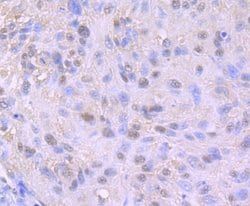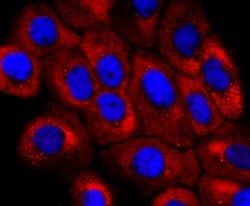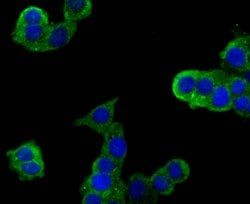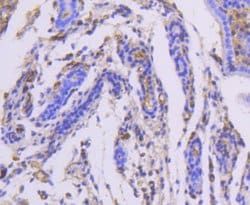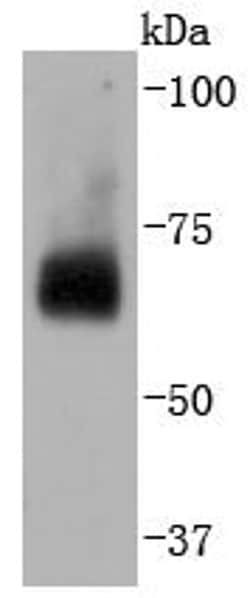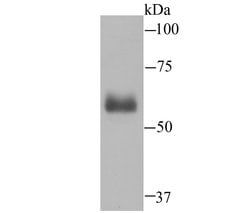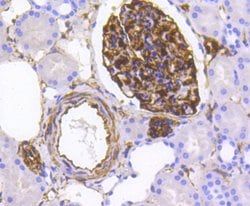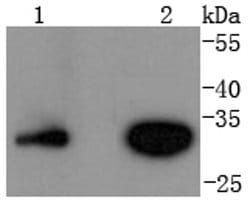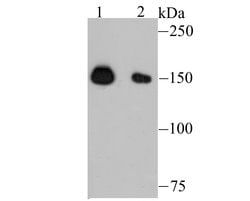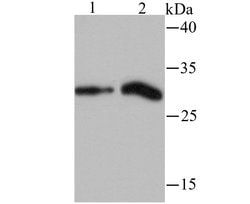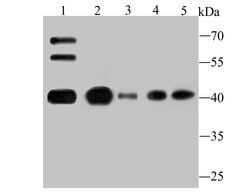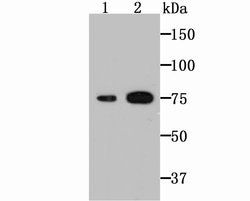NUP153 Recombinant Rabbit Monoclonal Antibody (JU40-41), Invitrogen™
Manufacturer: Thermo Scientific
Select a Size
| Pack Size | SKU | Availability | Price |
|---|---|---|---|
| Each of 1 | PIMA532811-Each-of-1 | In Stock | ₹ 46,413.50 |
PIMA532811 - Each of 1
In Stock
Quantity
1
Base Price: ₹ 46,413.50
GST (18%): ₹ 8,354.43
Total Price: ₹ 54,767.93
Antigen
NUP153
Classification
Monoclonal
Concentration
1 mg/mL
Formulation
TBS with 0.05% BSA, 40% Glycerol and 0.05% sodium azide, pH 7.4
Gene Accession No.
P49790, P49791
Gene Symbols
NUP153
Immunogen
Synthetic peptide within Human NUP153 aa 51-100
Quantity
100 μL
Primary or Secondary
Primary
Target Species
Human, Mouse, Rat
Product Type
Antibody
Isotype
IgG
Applications
Flow Cytometry, Immunocytochemistry, Western Blot, Western Blot
Clone
JU40-41
Conjugate
Unconjugated
Gene
NUP153
Gene Alias
153 kDa nucleoporin, B130015D15Rik, C88147, HNUP153, N153, nuclear pore complex protein hnup153, nuclear pore complex protein Nup153, nucleoporin 153, nucleoporin 153kD, nucleoporin 153kDa, nucleoporin 153kDa L homeolog, nucleoporin Nup153, nucleoporin Nup153 homolog, NUCZINK, nup153, nup153.L, XELAEV_18031694mg
Host Species
Rabbit
Purification Method
Protein A
Regulatory Status
RUO
Gene ID (Entrez)
218210, 25281, 9972
Content And Storage
Store at 4°C short term. For long term storage, store at -20°C, avoiding freeze/thaw cycles.
Form
Liquid
Description
- Recombinant rabbit monoclonal antibodies are produced using in vitro expression systems
- The expression systems are developed by cloning in the specific antibody DNA sequences from immunoreactive rabbits
- Then, individual clones are screened to select the best candidates for production
- The advantages of using recombinant rabbit monoclonal antibodies include: better specificity and sensitivity, lot-to-lot consistency, animal origin-free formulations, and broader immunoreactivity to diverse targets due to larger rabbit immune repertoire
- Nuclear pore complexes regulate the transport of macromolecules between the nucleus and cytoplasm
- They are composed of at least 100 different polypeptide subunits, many of which belong to the nucleoporin family
- Nucleoporins are glycoproteins found in nuclear pores and contain characteristic pentapeptide XFXFG repeats as well as O-linked N-acetylglucosamine residues oriented towards the cytoplasm
- The protein encoded by this gene has three distinct domains: a N-terminal region containing a pore targeting and an RNA-binding domain, a central region containing multiple zinc finger motifs, and a C-terminal region containing multiple XFXFG repeats
- Alternative splicing results in multiple transcript variants of this gene.
